MREI
Manav Rachna Educational Institutions
- Tuition and Financial Aid
- MR Universe
- Student Support
- Important Links
- Spotlight
Manav Rachna University
- About MRU
- Academics
- Schools
- Research
- Life @ MRU
- Placement
- Admissions
- Global Panorama
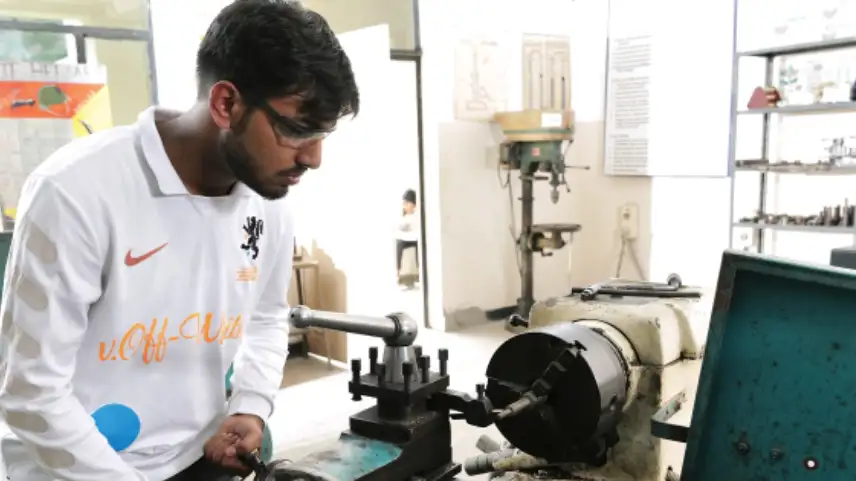
The faculties and scholars are performing research and publishing their research work in reputed journals and conferences. The research clusters of the faculties are formed which are collaborating with the other departments and universities to produce a quality work.
Production engineering, also known as manufacturing engineering, is the design, development, implementation, operation, maintenance, and control of all processes in the manufacture of a product.
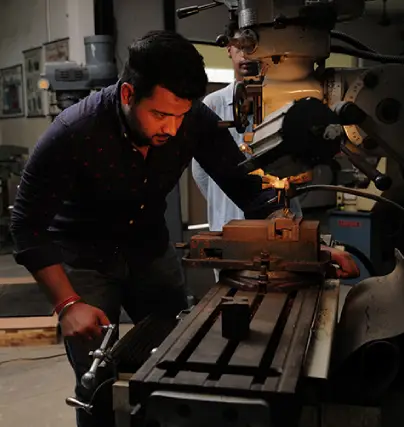
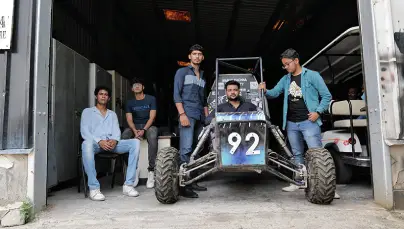
Production engineering deals with planning, designing, developing and managing various processes to produce high-quality products.
This thrust area is related to material science which is concerned with the understanding and application of the matter. It is an interconnection between the properties and microstructure of the material.
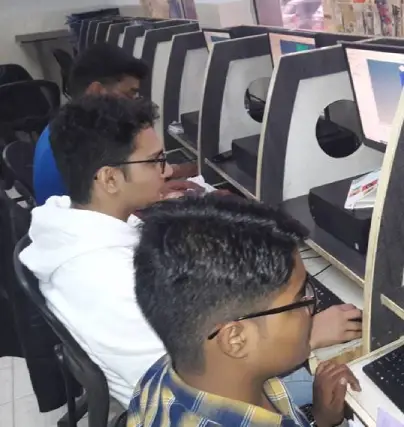
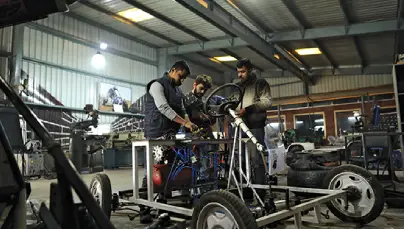
Material science deals with the microstructural, mechanical and morphological properties of the material.
Advanced Machining Processes includes Friction Stir Processing, Friction Welding, Advanced Metal Forming Processes. Advanced Machining Processes deals with the material without doing conventional treatment of the material.
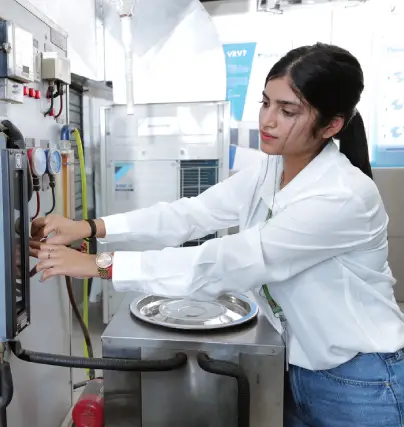
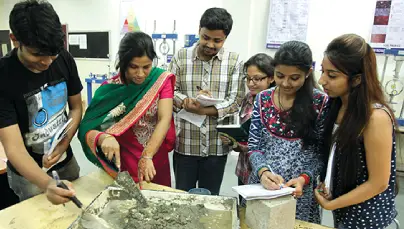
The Mechanical Engineering Department is enriched with the research facilities related to advanced machining.
Welding technology is a fabrication process to join two similar or dissimilar materials by using high heat to melt the parts together and allowing them to cool, causing fusion. Welding is a highly demanding research area in which much work has been done by the various researchers.
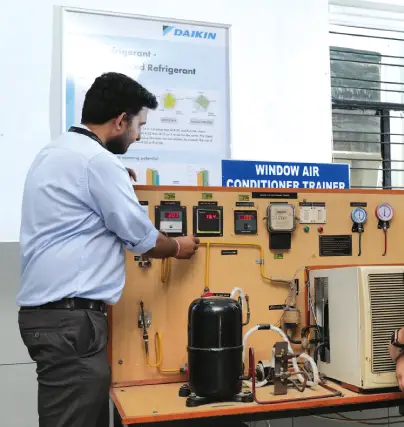
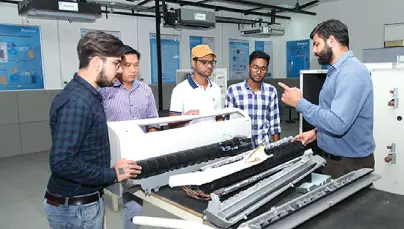
This area attracts Ph.D. scholars to pursue their research work in the latest technologies of welding.
Industrial engineering finds a way to eliminate wastefulness in the production process. It is concerned with optimization of complex problems, systems or organization by developing, improving and implementing integrated systems of people, money, knowledge, information and equipment.
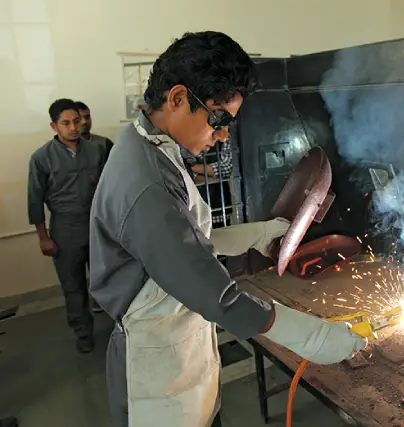
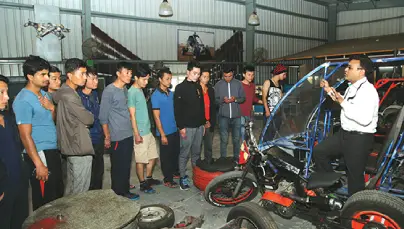
Manufacturing Process and Automation Engineering deals with the concepts and processes involved in the design and development of machines.
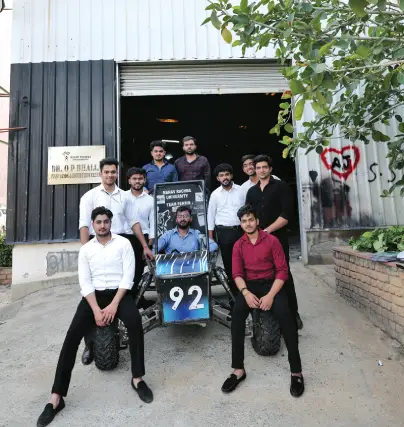
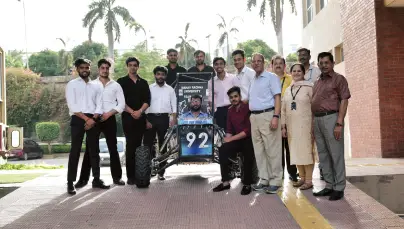
It mainly focuses on the different practices of manufacturing, design, research, use of machines, equipment and control systems.
Composite material is a combination of two or more different materials which can mix by using stirring action or any of the advanced machining processes. Composite material exhibits better surface properties than conventional material and its alloys.
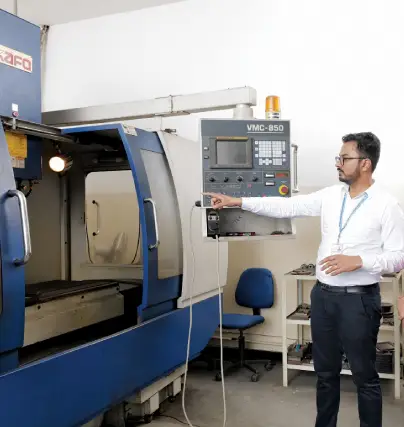
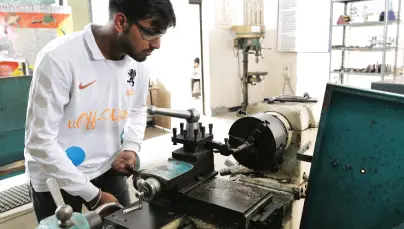
Nowadays scholars are doing their research work in the field of composite material and its properties.
Thermal engineering deals with the properties of heat, characteristics of fluid. Effect of temperature and pressure on the physical quantities are evaluated in this stream of engineering. Aerospace, Space , Nuclear etc programs are completely dependent upon thermal engineering.
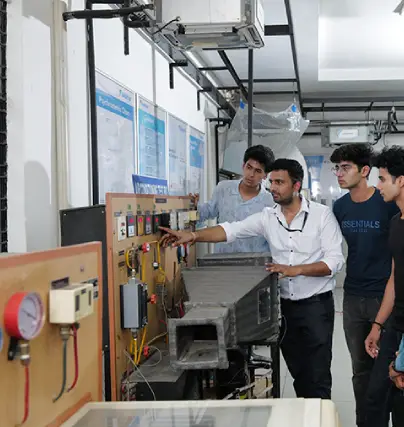
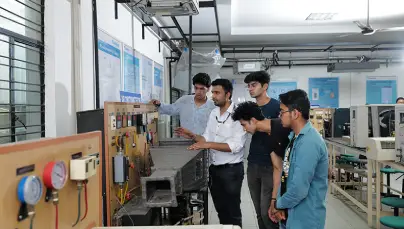
Solar technologies convert sunlight into electrical energy either through photovoltaic (PV) panels or through mirrors that concentrate solar radiation.


In the current scenario where conventional resources are limited, various researches are going on in the field of solar energy and its applications.
Computational fluid dynamics (CFD) is a science that, with the help of digital computers, produces quantitative predictions of fluid-flow phenomena based on the conservation laws (conservation of mass, momentum, and energy) governing fluid motion.


The concept of design for analysis (DA) as a strategy for designing a product or system is studied. DA states that designers should be constrained to work with only those designs which can be analyzed easily and quickly by simple tools.


DA imposes some discipline and constraints on the designers. Various design software such as AutoCAD, Solidworks, Catia, Unigraphics etc are used for the designing of the products.
Tribology is the science of wear, friction and lubrication, and encompasses how interacting surfaces and other tribo-elements behave in relative motion in natural and artificial systems. This includes bearing design and lubrication.


It is an interdisciplinary field which includes mechanical engineering, material science, Chemical engineering and chemistry.
Ergonomics involves designing the workplace to fit the needs of the worker rather than trying to make the worker adjust to the workplace. Good ergonomic design has been shown to increase work quality and production as well as worker well-being.


Welders can be subjected to ergonomic stresses caused by the dimensions and weight of the welding equipment and by the awkward body positions they must often assume to perform the work.
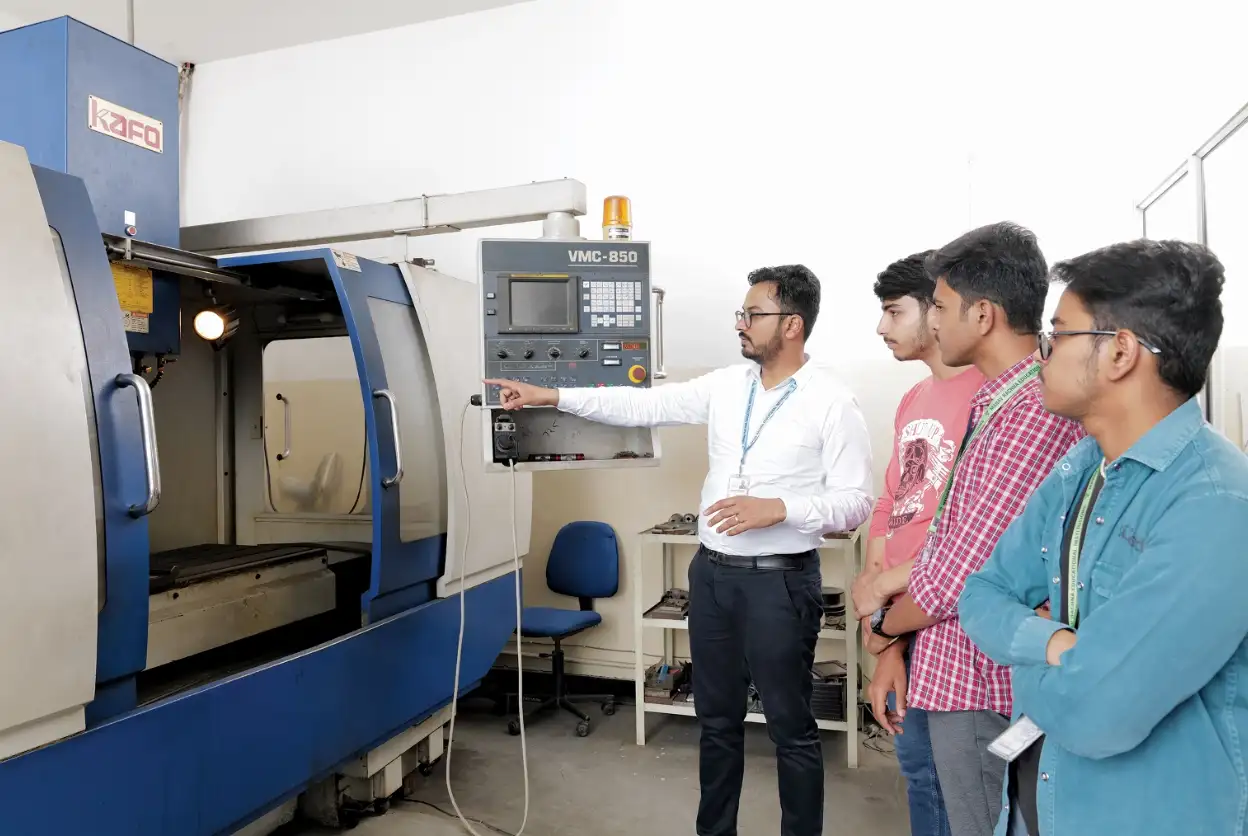
The Department of Mechanical Engineering is equipped with state of art labs and machineries namely, Altair, Daikin, Hydraulics and Pneumatics Lab, Vertical Milling Centre and many more. The Department encourages faculty and students to carry out research and supports them with infrastructure, lab facilities and modern machineries and software.
The scholars and faculties are also provided with the seed fund upto 1 lakh rupees to do the research work.

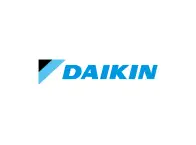
The Department also aids in providing the registration fees as well as Travelling Allowances and Dearness Allowances for attending the conference and short term courses. The mentorship to the scholars is provided by senior Chair Professors for conduction of smooth research.